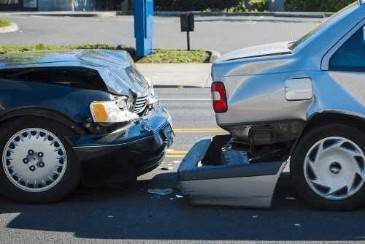Did you get injured from a car wreck? Learn the car accident don’ts on what NOT to do after a crash in this article. Contact our lawyers today.
Each year, nearly 6 million car accidents occur on U.S. roads. But while car crashes are incredibly common, they still need to be taken seriously — particularly if you are injured in an accident. Understanding what to do after a car accident is important. But knowing what NOT to do after a crash is just as essential. In today’s post, we’ll talk about five car accident “don’ts” you should keep in mind if you’re involved in a collision.
 After a Car Accident, Don’t…
After a Car Accident, Don’t…
- Leave the scene If you want to know what to do after a car accident, first thing’s first: remain at the scene. Although you may want to do nothing more than to get home to a safe place, you cannot afford to flee. Whether or not the accident was actually your fault, you need to stay there and call 911. Even if no one is hurt, you’ll need to contact police and file a report, rather than dealing with the incident on your own or leaving right away. Everything needs to be well-documented in order to protect your rights.
- Apologize If you’re able to get your car to a safe place and get out of your vehicle, you will probably be inclined to check on the other driver. Of course, you’ll want to find out if they’re okay and if they require medical attention. But resist the urge to apologize. It may be a natural impulse to say that you’re sorry, even if you don’t believe you caused the accident. You might think you’re being polite or caring, but you could actually be hurting your case. Saying that you’re sorry could be used against you because that’s essentially admitting you’re at fault. That could ultimately mean you’ll be liable for the accident in some way.
- Forgo medical attention With the rush of adrenaline coursing through your body, you might find it hard to know exactly what to do after a car accident. You might not even realize you’ve been hurt. But it’s far better to seek medical attention right away than to delay it. Not only will this allow you to get better much more quickly or detect underlying medical problems, but it will also help your personal injury lawyer if you end up needing to file a claim. Be sure to have any diagnoses and treatment documented right away — and if you’re uncertain as to whether you’ve been injured, play it safe and get checked out by a doctor.
- Neglect documentation Speaking of getting things documented: you’ll need to gather some evidence at the scene. If your cell phone is still available to you, make sure to take ample photos or even video of the car and the scene. Write down all pertinent information such as the contact info and insurance data for those involved in the accident, as well as statements and contact info from any witnesses. Record the date, time, license plate numbers, and weather conditions on the day. Having this information will prove essential for filing an insurance claim and for filing a personal injury claim.
- Speak without an attorney Whether or not the crash was your fault, you should consult with an attorney in the aftermath. Your personal injury lawyer can help to determine liability and whether filing a personal injury claim against the responsible party will be an appropriate course of action. It’s also important to not speak to another insurance company without your lawyer’s involvement to ensure your rights are protected. Insurance adjusters may try to contact you after the fact to provide a statement, but doing so may undermine your ability to receive the settlement you may deserve. Your lawyer will work in your best interests, whereas the insurance companies will look out only for theirs.
Knowing exactly what to do after a car accident can be challenging in all the confusion. But as long as you DON’T do the aforementioned things, you should be able to protect yourself following a crash.
